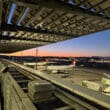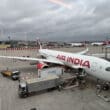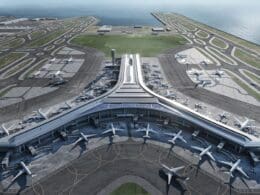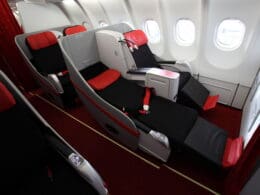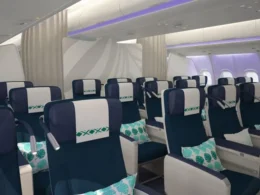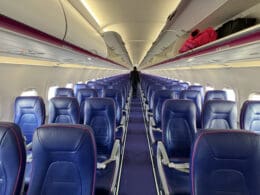Jason and I have long been intrigued in Taiwanese airline TransAsia, which operated flights from Taipei to various destinations around Asia. Their fleet consisted of A320s, A321s, A330s and ATR 72s, and had A321neos and A330neos on order. They seemed to have a rather nice onboard product, with angled flat seats at pretty attractive rates.
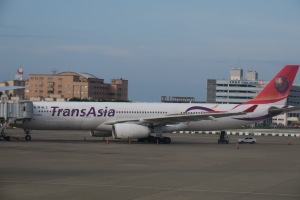 TransAsia Airbus A330-300 Taipei Taoyuan
TransAsia Airbus A330-300 Taipei Taoyuan
Unfortunately, they’ve had two ATR 72 crashes in a row, which didn’t really work out for them. So as of last Tuesday, November 22nd, TransAsia Airways has ceased all operations.
According to one of around two press releases that TransAsia has released:
Board members of TransAsia Airways reached a decision today (Nov. 22) to dissolve the company and to halt all its flights. The decision will be discussed in a shareholder’s meeting and implemented after its approval.
The carrier said it couldn’t bring its business back to previous level after the two plane crashes despite the staff’s hard work and the company’s reform measures. As its financial woes deepened due to sluggish regional industry trend, it had run up losses of more than NT$2.2 billion in the first three quarters of 2016 and did not see optimistic prospects. After a long time consideration and several discussions, its board of directors decided to dissolve the company. Chairman Vincent Lin said, “It was a painful decision to dissolve the company. We kept trying to find domestic and international professional bodies, partners, or even a new operational team to help TransAsia. It’s a pity that the hope was not fulfilled.”
“We choose to dissolve the airline at this point of time because the company still has more asset than liability, so we’re capable of providing necessary protection to the interests of passengers, employees and partners,” said Lin. “Before exiting Taiwan’s civil aviation industry, the 65-year-old airline will do everything we could to shoulder our last responsibilities.”
TransAsia said it would “take flight safety as a priority to the very end.” That is way it immediately suspended all the flights to prevent the board’s decision from affecting the mood of cabin crews and thus threatening flight safety. It extended its deepest apology for inconveniences caused to passengers and hoped for understanding.
The carrier thanked regulators such as the Ministry of Transportation and Communication and the Civil Aeronautics Administration as well as members of the Legislative Yuan’s Transportation Committee for their support and guidance along its way to improve safety and operation.
It has formed an emergency task force to deal with issues related to passenger refunds, employee layoffs, communication with the government, debt clearance, and shareholder interests.
The airline offers a full and unconditional refund to passengers who have bought tickets. All employees will be laid off according to the Labor Standards Act. A dedicated trust account is established to ensure smooth process of refunds and severance pay. The few unsettled cases from the two crashes will be properly handled, and related payment has been secured.
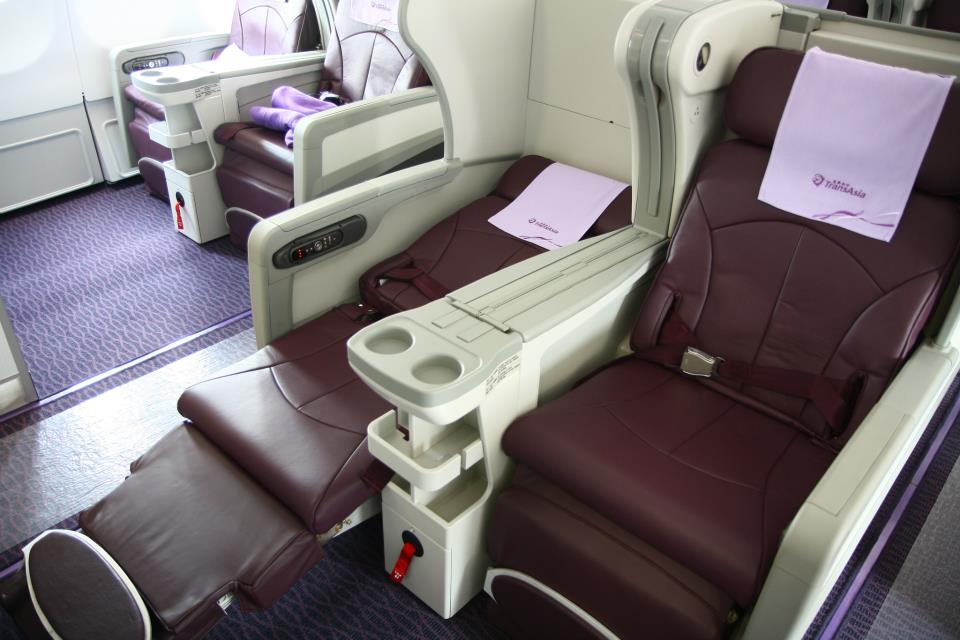
TransAsia’s solid regional business class product
Bottom Line
While I’m sad that TransAsia is (for the most part) liquidated, there are a few things that are telling me that their liquidation wasn’t taken very seriously. For example, this is the picture plastered on their website regarding their ceased operations:
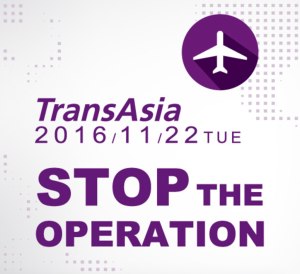
Unbelievable.


